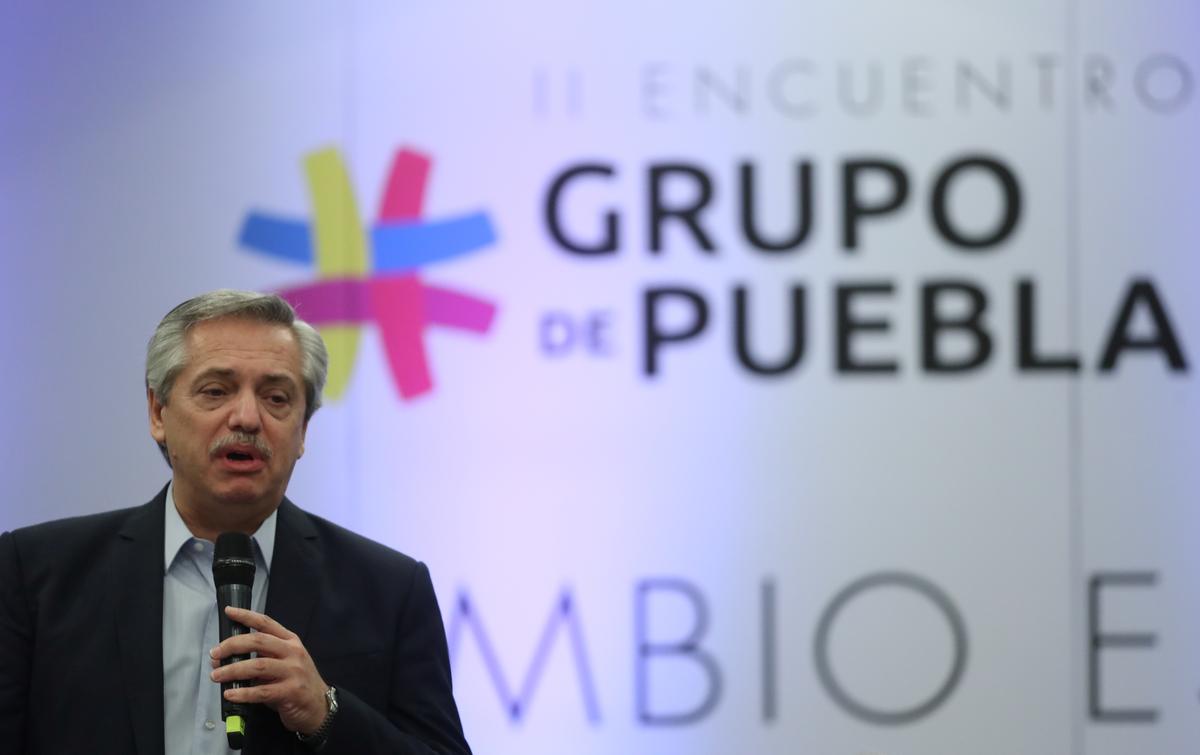RIO DE JANEIRO, BRAZIL – Latin America is the focus of the Covid-19 pandemic. It is also the continent most affected by the economic crisis caused – and exacerbated – by the coronavirus, with an estimated GDP drop of 9.4 percent in 2020, according to the International Monetary Fund’s projections.

On Friday, the Puebla Group, a forum that includes Latin America’s center-left political leaders, proposed fiscal reforms, the approval of a basic income, and a greater state involvement as alternatives to neoliberal policies to tackle the crisis.
“We must build a more equal continent, with greater social balance and better wealth distribution,” said Argentine President Alberto Fernández in a message recorded for the online meeting of the Puebla Group on the first anniversary of its foundation. “The world is offering us an opportunity with this pandemic. The opportunity to build a fairer society, to start over and this time thinking about everyone,” added Fernández, the only representative in office to attend the conference.
When he was elected, Fernández sought the support of Mexican Andrés Manuel López Obrador to build a progressive Latin American alliance, but this did not progress. The most influential voices in the Puebla Group are now former country presidents, such as Uruguayan José Mujica, Colombian Ernesto Samper, and Brazilian Dilma Rousseff.
The proposals of Colombian economist and politician José Antonio Ocampo have received broad support, particularly in imposing an extraordinary tax on companies that have benefited from the coronavirus crisis, such as technology and pharmaceutical companies, and greater fiscal transparency to prevent tax evasion of large fortunes and multinational companies.
The basic income, recently approved in Spain and under debate in more countries, is yet another initiative promoted by the Puebla Group. Progressive leaders are in favor of this measure to reduce extreme poverty, which could exceed 90 million Latin Americans this year, according to the Economic Commission for Latin America and the Caribbean (ECLAC). Alicia Bárcena, the organization’s executive secretary, stressed that the pandemic “has exposed great fractures in the region” and rendered it “more unequal, poorer, more undernourished and enraged”.
“The reconstruction of Latin America will represent approximately ten to 12 percent of GDP, and non-traditional sources of financing will have to be considered,” said Samper. Taxes on the wealthiest and those who have benefited most from the crisis and the hunt for tax evaders would allow states to have more liquidity to meet the costs of the pandemic, added the former Colombian president.
The Puebla Group was founded a year ago and has 30 members, including past presidents, ex-foreign ministers, and Latin American politicians. Its creator is former Chilean presidential candidate Marco Enríquez-Ominami, who has close ties with Fernández.
Latin American integration is crucial to overcoming the crisis, participants agree, but this goal seems much further away today than it was a decade ago. The major differences between Fernández and his Brazilian counterpart, Jair Bolsonaro, have further undermined regional organizations such as Mercosur. “The world to come demands permanent changes, and disconnected we are nothing more than a leaf in the wind,” Mujica warned in his speech, in which he projected “a poorer and worse world than today”.
Spain was also represented by ex-president José Luis Rodríguez Zapatero and the current Ministers of Foreign Affairs, Arancha González, and of Equality, Irene Montero. The latter stressed the need to protect women, who are severely affected by the pandemic for being the main caregivers.
The forum was named after the Mexican city where the first meeting was held, but Argentina and Brazil have since had a greater participation than Mexico. López Obrador and his chancellor, Marcelo Ebrard, did not attend the meeting. Former Bolivian President Evo Morales attended as a listener, but did not speak.
Source: El País

